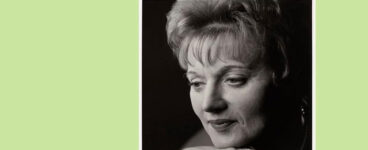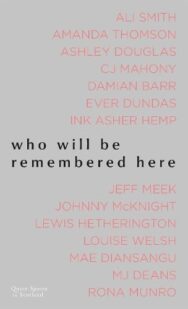‘She would see wives – like me and Eilidh! – walking hand in hand, legally married, kissing in broad daylight; she might even spot someone dressed as Sappho. She would scarcely believe her eyes. She would, I am certain, love it. ‘
Who Will Be Remembered Here is a fantastic collection of writings from authors in Scotland on the places in Scotland which define their queer history. Below is the piece from writer and academic, Ashley Douglas.
Who Will Be Remembered Here: Queer Spaces in Scotland
Edited by Lewis Hetherington & CJ Mahony
Published by Historic Environment Scotland
My Sapphic City
By Ashley Douglas
At the time of our wedding, we had never even heard of Marie Maitland – the historical lesbian poet whose significance to not just Scottish, but global, queer history can scarcely be overstated, and whose biography, nearly a decade on, I find myself writing.
Marie lived from c1546 to 1596. A contemporary of Mary, Queen of Scots and John Knox, she was born into the influential Maitland of Lethington family – her brothers, in particular, dominated Scottish politics during this era.(1) In 1561, in the twist of fate that changed everything, Marie’s father, the judge and poet Sir Richard Maitland of Lethington, went entirely blind. The youngest daughter, and the only one still unmarried and at home, thus it was that a teenage Marie first became her father’s literary and legal secretary – a role in which she would serve for the next 25 years. In a life path very different to that of her three sisters, who had all been promptly married off, Marie remained abnormally unwed for most of her adult life. This gave her the relative freedom to pursue her own learning and writing – and to fall in love with another woman, which we know about because she immortalised that love in poetry, recorded surreptitiously, but still dangerously, still bravely, in a manuscript ostensibly of her father’s poetry.
The Scottish Reformation of 1560 heralded an era in which Scotland was suffocated by a particularly extreme, virulently misogynist brand of Calvinism, where women were deemed inferior to men in every way, and where ‘sodomy’ (whether between two men or two women) was one of the worst transgressions imaginable.(2) And yet it was in that unthinkably hostile climate of immediately post-Reformation Scotland that Marie declared to her female love, with unmissable eroticism, ‘Ye wield me holie [wholly] at your will and raviss [ravish] my affectioun’– and that, later in the same poem, she stated her unequivocal desire to marry the woman that she loved. Marie invoked Ruth’s pledge of ever-lasting devotion to Naomi in the Old Testament and wrote that, if only she and her lover could ‘with joyfull hairt’ be married, they would not be the two ‘unhappie wemen’ that they were. Of course, in the 1500s, there could be no realistic hope or prospect of them ever actually being able to marry. But in their hearts, Marie stated, ‘nocht but deid [nothing but death]’ could ever divorce them: their love, she vowed, would prove that ‘thair is mair constancie in our sex, than ever amang men has been’.
This poem appears in a manuscript that Marie completed in 1586, along with a series of other technically anonymous, but female-authored, poems, slipped in among the many pages of authoritative male-authored verse. Marie’s name is emblazoned on the manuscript’s title page, twice. Various poems within its pages confirm her authorship, and her reputation as a poet. In one poem, Marie is even named as a poetic heir to Sappho of Lesbos – the ancient Greek poet who wrote explicit poetry about her love for women, and gave us the very words ‘sapphic’ and ‘lesbian’. Indeed, Marie is one of the earliest known authors of explicitly lesbian poetry in Europe since Sappho herself, making her a key figure in the history of women who love women.
1 Marie’s father, Sir Richard, was a judge, privy counsellor and Keeper of the Great Seal under Mary, Queen of Scots; her brother William was Secretary to Mary, Queen of Scots (Secretary Lethington); her brother John was later Chancellor to her son, King James VI (Chancellor Maitland).
2 In 1570, for example, two men were convicted of ‘sodomy’ and executed in Edinburgh. In 1625, in Glasgow, two women were found guilty of ‘sodomy’, publicly condemned, and sentenced to separate from each other on pain of excommunication. Numerous other individuals in this period, male and female, were tried for sodomy and witchcraft; the two charges were viewed as inextricable and were often conflated.
Who Will Be Remembered Here: Queer Spaces in Scotland is published by Historic Environment Scotland, priced £16.99.
ALSO IN THIS ISSUE

 David Robinson Reviews: The Letters of Muriel Spark
David Robinson Reviews: The Letters of Muriel Spark
‘”Your policy is cramping and stifling my vital development as a writer. I am tired of living in an …

 The Book … According to Damian Barr
The Book … According to Damian Barr
‘It’s a novel based on two real people: Robert (Bobby) MacBryde and Robert Colquhoun. They were work …













